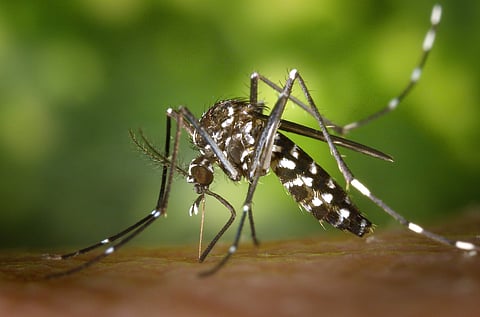New malaria vaccine to be a game changer
India has been making impressive strides in providing vaccines to the world. ‘Made in India’ jabs offered protection to people in 170 nations during the Covid pandemic and now the country has joined the big fight against malaria. The World Health Organization (WHO) has recently given a stamp of approval to the R21/Matrix–M™ malaria vaccine developed by the Serum Institute of India (SII) in collaboration with the University of Oxford. The second malaria vaccine to be ever developed, R21/Matrix-M™ will be administered to children under the age of five years in three primary doses and a booster shot after a year. According to reports, trials have already proven its safety and effectiveness as it reduced symptomatic malaria cases by 75 percent in areas where there is a high seasonal prevalence and by 68 percent in areas where the disease circulates year-round.
Malaria is indeed a giant killer. It has threatened the lives of billions of people across the globe, disproportionately affecting the most vulnerable sections. In 2021 alone, it claimed more than 6,19,000 lives the world over and most of them were children. Half of the world’s population still lives in a malaria high-risk area, according to WHO. Although cases in India dropped 60 percent between 2018 and 2022, the number of cases being reported every year is still significant. The incidence of malaria is so prevalent that it has been declared a notifiable disease in 33 States and Union Territories in India. It is in this context that the recently developed vaccine becomes all the more significant.
According to WHO, it will enable GAVI (a global vaccine alliance) and UNICEF to buy the vaccine from manufacturers without much delay. The R21 vaccine is expected to be available by mid-2024. The Serum Institute of India is understood to have already established production capacity for 100 million doses per annum and it will be doubled over the next two years. The vaccine, if made available at an affordable rate, will play a crucial role in achieving the country’s vision to be malaria-free by 2027 and to eliminate the disease by 2030. If the trajectory of malaria is analysed with precision, it is clear that it is not just a public health issue but also a social, economic, and political challenge. The new vaccine, if made available to the eligible population free of cost, has the potential to be a game changer in the country’s fight against the killer disease.

